Maine Maritime Academy
A COLLEGE OF ENGINEERING, MANAGEMENT, SCIENCE, AND TRANSPORTATION
Power Engineering Operations
|Bachelor's DegreeOperate and maintain industrial steam and gas turbine power plants and related mechanical systems with the power engineering operations degree at Maine Maritime Academy. You’ll be eligible to sit for the State of Maine Fourth Class Stationary Steam Engineer license. You’ll also receive hands-on firefighting and maintenance training in your first semester.
Maine Maritime Academy’s diverse faculty hold esteemed degrees in their field and are highly experienced in power engineering. You’ll benefit from their connections to industry that can lead you to non-seagoing internships and jobs in power engineering across the United States.
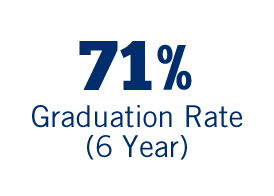

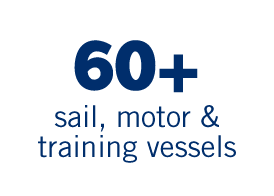
Extraordinary Location
You’ll benefit from Maine Maritime’s ideal location on Castine Harbor. Situated on 35 acres on a hillside overlooking Penobscot Bay in historic Castine, Maine Maritime Academy offers you easy access to the water and to outdoor adventures at nearby Acadia National Park, Baxter State Park, and the Appalachian Trail.
Co-Op Training
Gain hands-on training through summer cooperative work experiences in power plants and large industrial settings nationwide. Along with vital work experience, you’ll be exposed to current practices in power engineering operations, management organizations, equipment and machinery, and people and places across the United States.
NECHE-Accredited
Maine Maritime Academy is accredited by the New England Commission of Higher Education (NECHE), a nonprofit, non-governmental membership organization. NECHE accreditation is the regionally recognized standard and is a mark of a strong undergraduate degree.
Student Perspective

What Is Power Engineering Operations?
Power engineering is a subfield of electrical engineering. It deals with the generation, transmission, distribution, and utilization of electric power.
Why Study Power Engineering Operations at Maine Maritime Academy?
Develop knowledge and skills in power engineering and prepare for a dynamic career through an undergraduate engineering program that U.S. News & World Report consistently ranks among the best in the nation.
Hands-on learning
The power engineering operations degree program at Maine Maritime Academy is particularly hands-on. Not only will you prepare for your future through two, 12-week co-ops, usually in high-pressure steam facilities, but you’ll also receive direct experience aboard the State of Maine, Maine Maritime’s 500-foot training ship.
First-rate labs and facilities
Grow your understanding of current and developing power production technologies through our specialized labs and facilities. In addition to opportunities to spend time on our fleet of vessels, you’ll gain practical experience in labs, including our small-scale operating steam plant, power plant simulator, welding and testing lab, and electrical power lab.
Regiment of Midshipmen
As a power engineering operations major you’re not required to participate in Maine Maritime’s Regiment of Midshipmen, a uniformed student body. However, you can opt in. Many students find that the regiment boosts self-confidence, self-discipline, time management, leadership, and teamwork abilities. Participation is a great way to meet friends and build bonds that will last a lifetime.
What Can You Do With a Power Engineering Operations Degree?
The power engineering operations degree prepares you for shoreside positions in operation and maintenance of industrial steam and gas turbine power plants and related mechanical systems.
Career outlook in power engineering
Employment of electrical and electronics engineers is projected to grow 2 percent through 2028, according to the U.S. Bureau of Labor Statistics.
How much do power engineering operations graduates make?
The median annual wage for electrical engineers was $96,640 in May 2018, according to the U.S. Bureau of Labor Statistics.
Alumni Perspective

Explore Classes for the Power Engineering Operations Degree
The power engineering operations degree program is heavily focused on the mechanical side of power engineering. Your courses are closely aligned with those in the power engineering technology, marine engineering operations, and marine engineering technology programs. The power engineering operations program is more hands-on with an emphasis on rotating equipment and requires fewer math and technical classes than the power engineering technology major. Through a balanced curriculum that includes arts and sciences courses, you’ll further develop skills such as problem-solving, teamwork, and communications so you can graduate as a well-rounded operator.
- Structured Problem Solving with Computer
- Fundamentals of Engineering Operations
- Composition
- Pre-Calculus Mathematics
- USCG Fire Fighting
- Any PE Course
- Graphics
- Humanties I
- Technical Calculus I
- Maintenance - First Year
- Technical Physics I
- Physics I
- USCG Fire Fighting Live Burn
- Any PE Course
- Any PE Swim Course
- Steam Generators I
- Diesel Power I
- Fluid Power
- Humanities II
- Welding
- Technical Physics II
- Power Equipment Lab
- Machine Tool Operations I
- Thermodynamics I
- Electrical Power I
- Technical Communications
- Any EC/SO/PY Course
- PEO Cooperative Industrial Fld Exp I
- Steam Turbines I
- Machine Tool Operations II
- Electrical Power II
- Free Elective
- Any EC/HC/Hum/SS/HY/PY Course
- Chemical Principles
- Steam Power Systems I
- Gas Turbines
- Diesel Power II
- Free Elective
- PEO Coop Industrail Field Exp II
- Power Engineering Operations Capstone I
- Thermodynamics II
- Automation and Control
- Free Elective
- Any EC/HC/Hum/SS/HY/PY Course
- Power Engineering Capstone II
- Engineering Economics
- Heating, Ventilation & Air Conditioning
- Free Elective
- Any EG/ES/ET/NA Course
View all courses for the power engineering operations degree.
Department Faculty
Get Started on Your Bachelor’s Degree in Power Engineering Operations
Take the next step toward earning your power engineering operations degree at Maine Maritime Academy.
Contact an Admissions Representative
If you’re ready to prepare for land-based operation and maintenance positions, please contact an admissions representative at Maine Maritime Academy.
Rated Military Friendly®
Maine Maritime Academy welcomes veterans and has the resources in place to help you transition to student life. Please contact our dedicated admissions representative for veterans.
Transfer
Maine Maritime Academy welcomes motivated and academically qualified transfer students. Please contact our admissions office to learn more about transferring to Maine Maritime Academy.
Apply now and request more information
We invite you to start your application or request more information about the power engineering degree at Maine Maritime Academy.

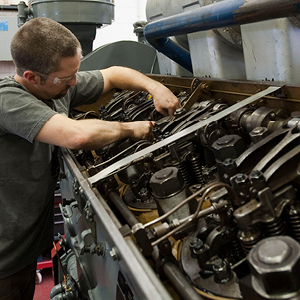
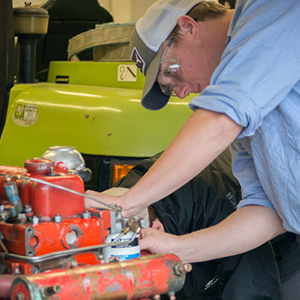
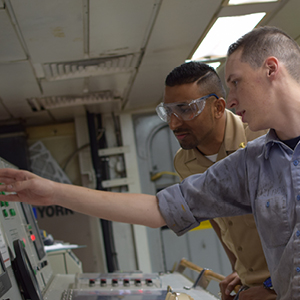
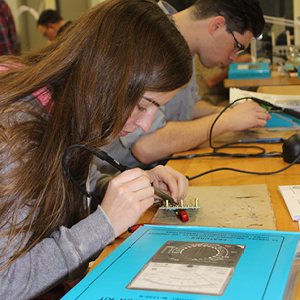







All Rights Reserved © 2026 • Web issue?
Non-Discrimination Notice • Privacy Policy & GDPR